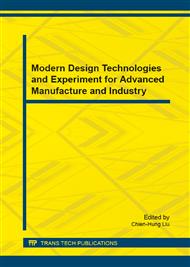p.274
p.280
p.285
p.289
p.294
p.300
p.305
p.309
p.314
Health Assessment and Fault Diagnosis for the Heat Exchanger of the Aircraft Environmental Control System Based on STF-LR
Abstract:
The aircraft environmental control system (ECS) is a critical aircraft system that provides the appropriate environmental conditions to ensure the safe transport of air passengers and equipment. The functionality and reliability of ECS have elicited an increasing amount of attention in recent years. The heat exchanger is a particularly significant component of ECS because its failure reduces the system’s efficiency and can lead to catastrophic consequences. Health assessment and fault diagnosis for the heat exchanger are necessary to perform maintenance and prevent risks in a timely manner. This paper presents fault-related parameter estimation methods based on strong tracking filter (STF) and logistic regression (LR) algorithm for heat exchanger health assessment and root cause classification, respectively. Heat exchanger fault simulation is conducted to generate performance degradation data, through which the proposed methods are validated. Results demonstrate that the proposed methods are capable of providing stable, effective, and accurate heat exchanger health assessment and root cause classification.
Info:
Periodical:
Pages:
294-299
Citation:
Online since:
May 2015
Authors:
Price:
Сopyright:
© 2015 Trans Tech Publications Ltd. All Rights Reserved
Share:
Citation:


